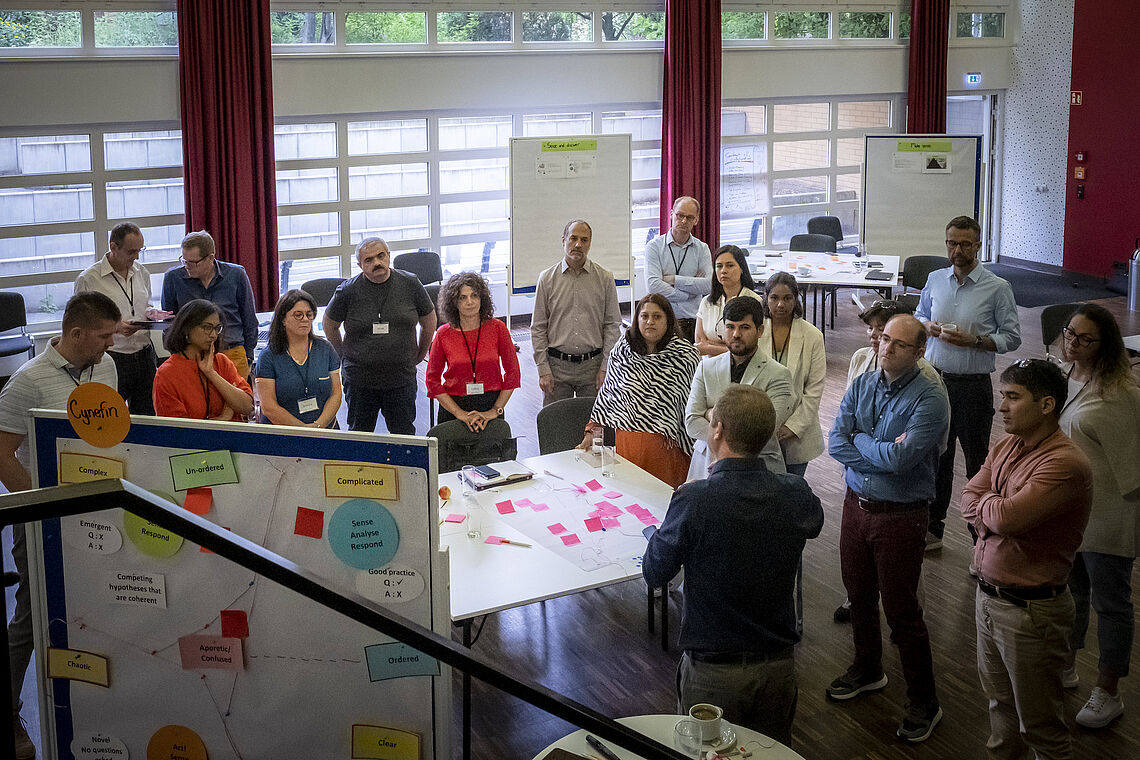Knowledge Management in economic development
Knowledge management typically happens within AND between different stakeholders in economic development contexts. While the knowledge within an organisation can be managed, knowledge flows between various organisations can only be enabled.
In traditional knowledge management approaches, knowledge is typically seen as something that can be captured explicitly. In this approach, knowledge is treated as a stock item that, once captured, can be used by others in different circumstances. Think of capturing case studies, lessons learned and documenting evidence of change.
In our approach, we see knowledge as a flow. It circulates in an environment where people might not even know they possess or have access to this knowledge. Often knowledge flows only become evident in the moment where a person or a group must make decisions. Even when a person knows something that is hard to express (tacit knowledge), they would often only share it if they know how others will use the information. This means that knowledge sharing is dependent on trust and social relations.
Knowledge management in economic development is closely related to decision-making under conditions of uncertainty and ambiguity. Entrepreneurs must make decisions about investments, innovations and managing risk, while meso and public sector organisations must decide how to address the economic patterns and bottlenecks. Policy makers and leaders of public organisations must decide how to allocate resources, and must try to figure out from a wide range of competing data points how to proceed. Entrepreneurs, policy makers, public officials and development practitioners might all need the same information, but they interpret it differently based on their context and perspective.
Another aspect of knowledge management in development contexts is that data is often incomplete or unreliable. Yet, complex adaptive systems like economies require feedback in order to change. We need to know when to amplify specific interventions or behaviours, and when to dampen certain unfolding patterns. It is not desirable that stakeholders have to go out and collect data everytime a decision needs to be made.
Lastly, knowledge management in development is also closely related to how different societal stakeholders learn about new technology and how new knowledge is created, adapted and disseminated. Therefore knowledge management is a sub-theme of our work in promoting innovation systems, technological upgrading and learning in developing countries.
As Mesopartner, we understand the challenges of knowledge management within organisations, but we are also uniquely positioned to understand the challenges and opportunities of managing the knowledge that flows between organisations. We have developed many instruments to enable decision making under conditions of uncertainty and ambiguity, and have also developed instruments to enable people from different sectors to search and discover information, understanding and opportunities together.
Blog highlights
Read recent blog posts about Unlocking and Leveraging Knowledge by Shawn Cunningham

Additional resources
News article by Shawn Cunningham "Unlocking knowledge to enable innovation"
A Presentation by Prof Dave Snowden of the Cynefin Co
Blog series: Organisational knowledge and innovation, by Shawn Cunningham
Contact us
If you would like to engage us on this topic, email Shawn Cunningham.

